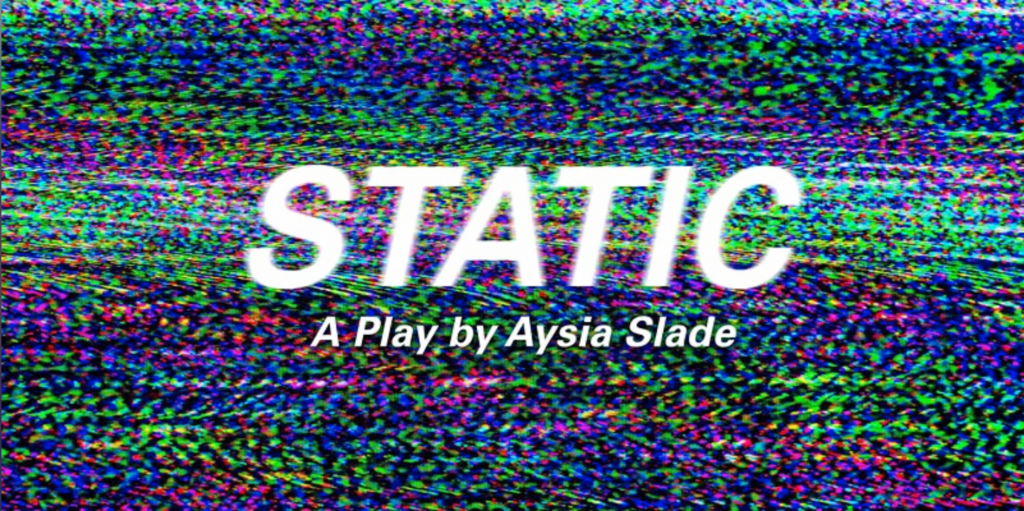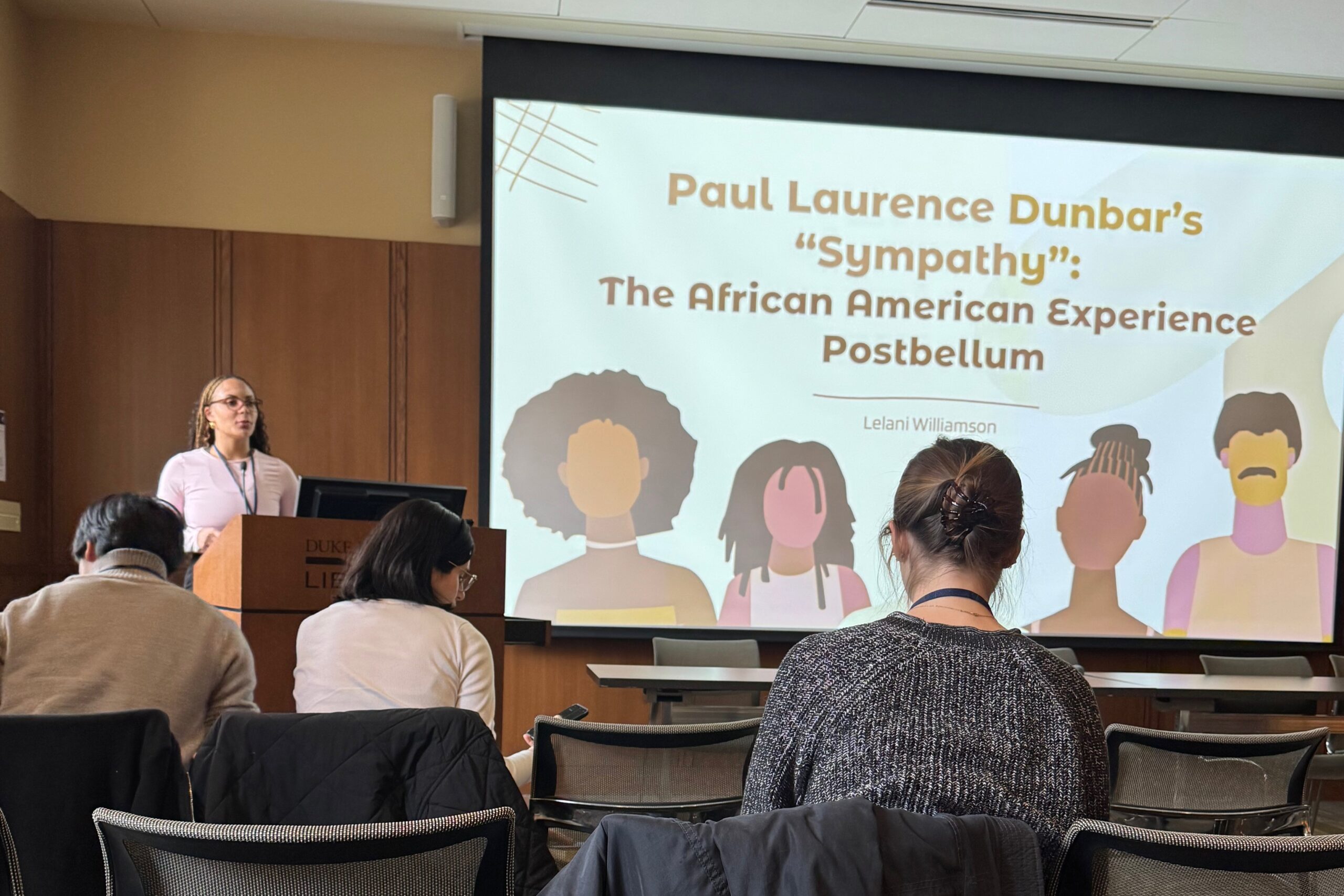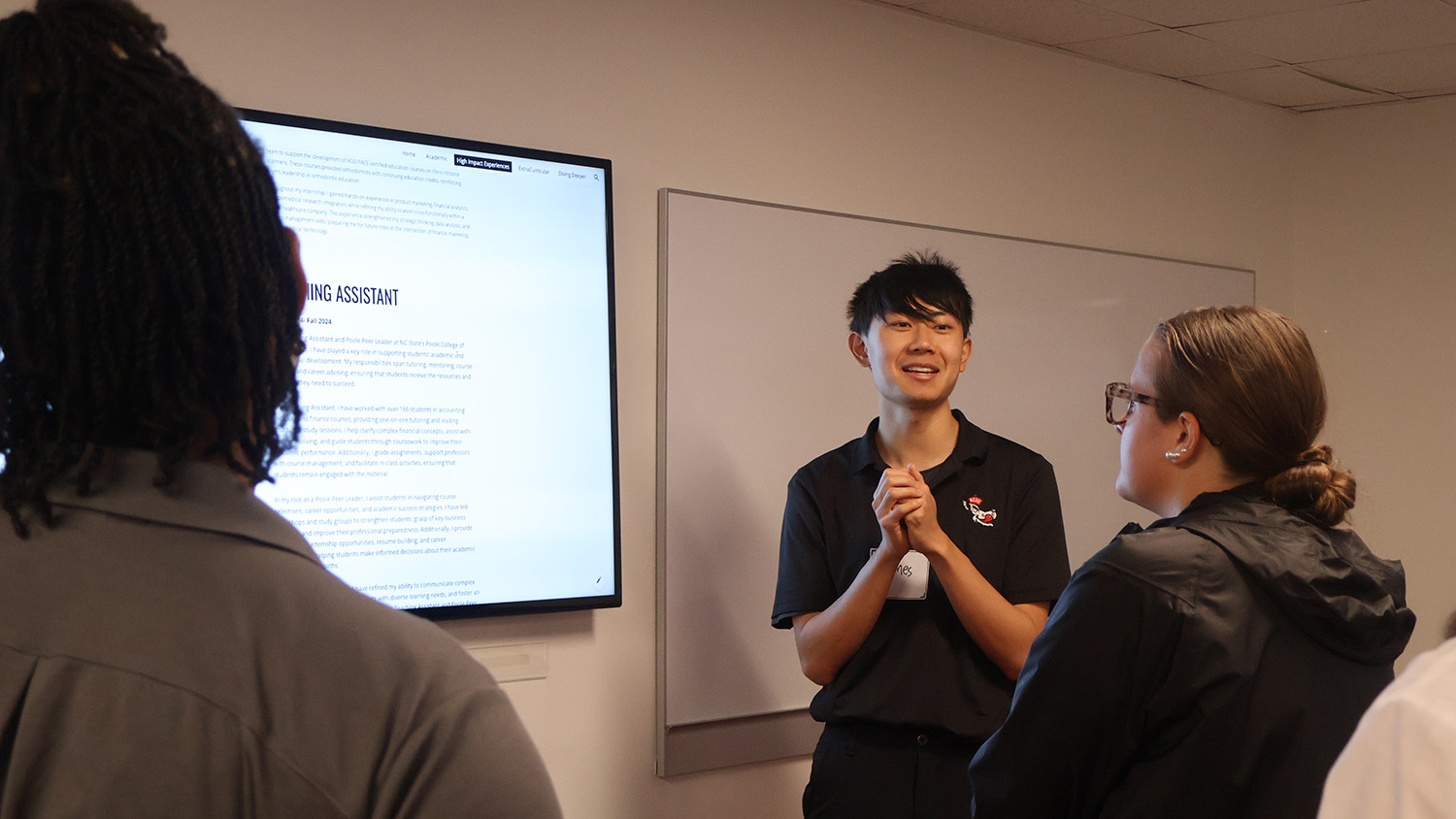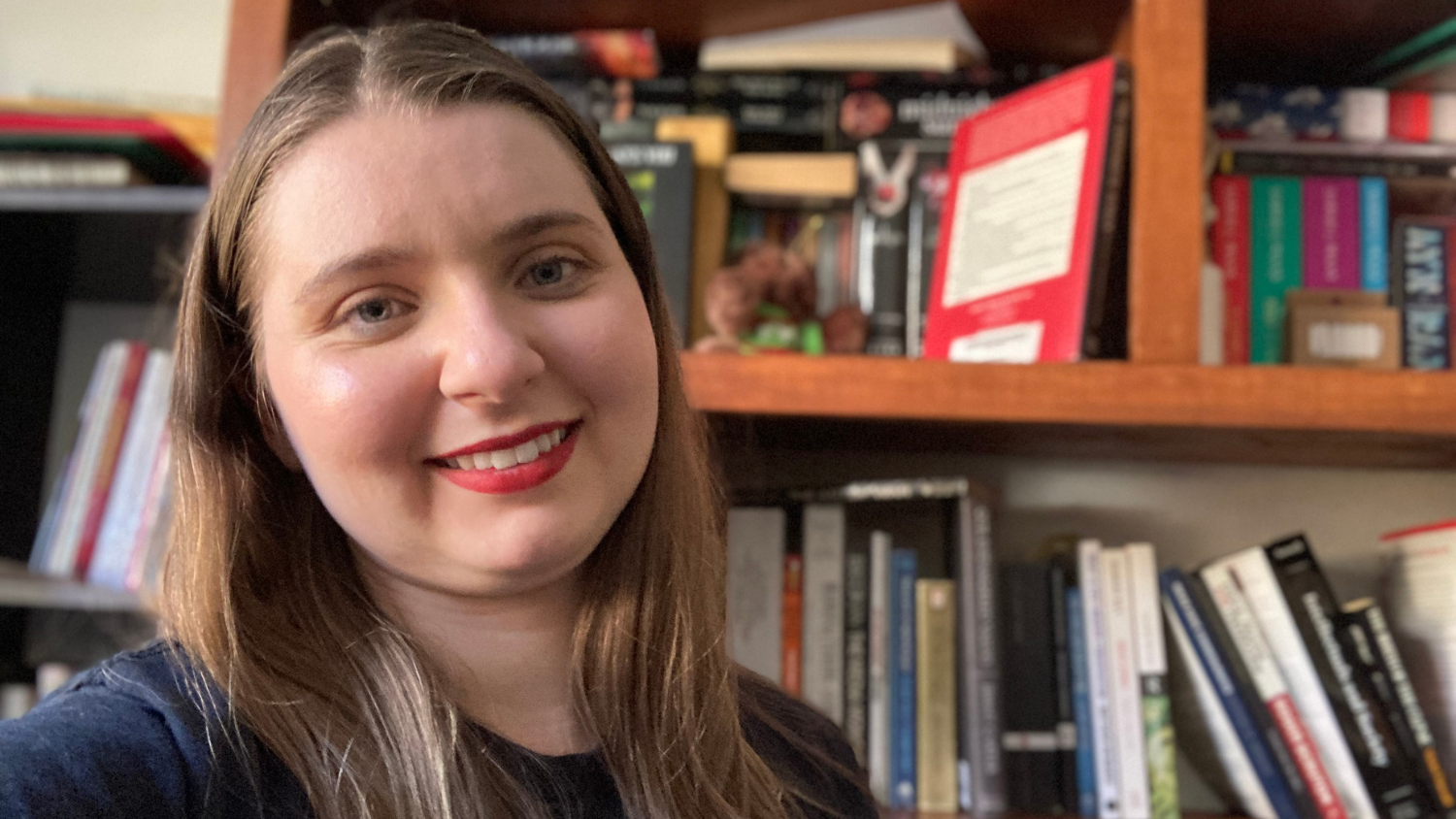Spotlight on Our Students: Aysia Slade
The University Honors and Scholars Programs talk to Honors Program student Aysia Slade, who won a Creative Artist Award for her play, Static.

By Chester Brewer
In this edition of Spotlight on our Students, we were able to talk with University Honors Program (UHP) student Aysia Slade, a senior majoring in psychology, about her award-winning play, Static, and how her time in the UHP has set her up for success.
UHSP: Aysia, first of all, thank you for meeting with us to discuss your work. And congratulations on winning the Creative Artist Award for your play Static. We were ECSTATIC to hear about this accomplishment. To get us started, can you tell us about the general synopsis of Static?
AS: Thank you! Yes, so, Jay, Ali and Eli, the main characters, have known each other since grade school, but college transforms them in ways they never expected. Jay dreams of a future built from his morning radio show. Eli and Ali find their relationship shifting when their friendships tragically shift. Isolation seems inevitable until Jay’s music connects them all.
UHSP: That sounds very interesting. Can you tell us a little about the people and experiences that inspired this work?
AS: The characters in my show are made up of fragments of people that I’ve known my whole life. In each character, you can see bits and pieces of the people that have inspired me. The people that I’ve known and loved and no matter how briefly. I was mainly inspired to write Static as an opportunity to combine my passion for psychology and mental health with my love for theatre. I wanted to create a piece that dealt with these difficult topics in a way that was not traumatic for the audience or the actors.
UHSP: That sounds like a really interesting and interdisciplinary way to approach your creative process. It’s so great that you are incorporating themes about mental health. What do you hope others learn or feel after seeing your play?
AS: I want the audience to feel like they are getting a special glimpse into the lives of characters that are complete and varied. I really want Static to capture the highs and the lows of the human experience and I want the audience to feel each of those moments. I think that each audience member’s response will be different, and should be different, and that’s part of what I love about theater. There’s no one response that I want to see more than others; I welcome them all.

UHSP: Writing a play must take quite a long time; what is the most interesting aspect of creating a play from start to finish? What has been the most challenging? Why?
AS: I think the most interesting aspect for me has definitely been being able to do readings and to finally see my characters come to life on stage. The audience feedback that I’ve gotten so far has been so helpful in the writing process and has definitely helped shape the play as it stands today. I think the most challenging thing for me has been rounding out the parts of the story that aren’t as exciting to write. I always start writing by working on the scenes and moments that feel most important to me, and the part I’ve struggled with is filling in the gaps in between those moments.
UHSP: That is really great personal information to understand, though — the way your process works and how to play to your strengths. What is the most valuable thing you’ve learned so far in this process?
AS: I’ve definitely learned that my voice as a writer can have an impact on other people, which is something that I was not sure of before. I had written many times, but only for myself and only in my personal journals and diaries. I think that every writer has felt that fear that the piece that is so important to them might not resonate with others the same way. This was my first time creating a piece of writing that I wanted to be consumed by an audience, and seeing the warm welcome it’s gotten so far has been so amazing.
UHSP: Yes! That creative process is like giving birth to something and waiting to see how others react to it. It can be so wracking. Kudos to you for sticking with it. How has your time in the UHP prepared you for this experience?
AS: I was actually inspired to write Static as my Honors Capstone project for the UHP. I think that the interdisciplinary nature of the UHP definitely helped shape me as a writer and a person. It made it a lot easier for me to be able to step into different perspectives.
UHSP: Sounds like we are fulfilling the mission of interdisciplinarity. High five! So you are a senior now and getting ready to graduate. Where do you see yourself in five years?
AS: Yes! I am graduating in the fall and I will be attending law school next year, so most likely I will be practicing law within the public interest field. I definitely think that I will still be writing and participating in the theatre no matter what my job is.
UHSP: Well congratulations on being accepted to law school. You’re such a great example of the importance of trying things outside your academic discipline. Before you go, can you share with us the best bit of advice you’ve ever received?
AS: My mom always says, “You can do anything you set your mind to.” She was right.
UHSP: Hands down. Moms have it so dialed in sometimes. Well, Aysia, thank you again for taking the time to talk with us, and congratulations all around for your accomplishments. We will be looking forward to hearing about how law school goes in the years to come.


